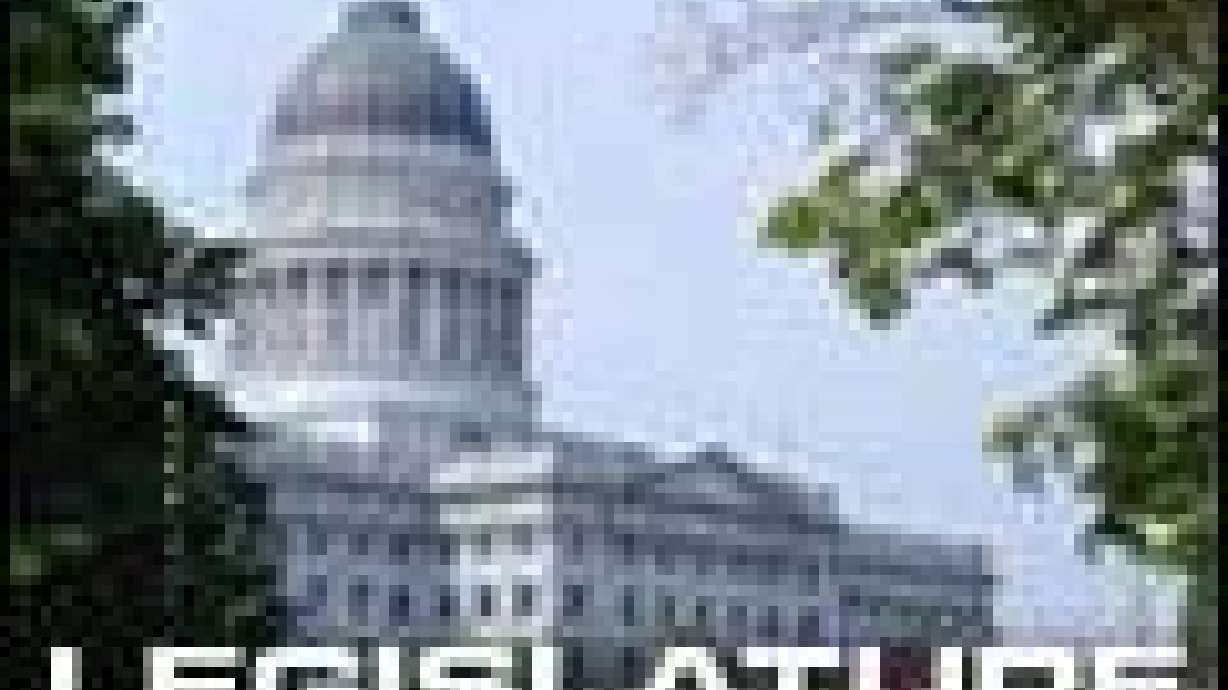Estimated read time: 4-5 minutes
This archived news story is available only for your personal, non-commercial use. Information in the story may be outdated or superseded by additional information. Reading or replaying the story in its archived form does not constitute a republication of the story.
SALT LAKE CITY (AP) -- Democratic leaders said Wednesday that Republicans' plans for a special session to cut $70 million in income taxes with a system that primarily benefits the rich is "electioneering" and insisted the money would better be spent on education.
The Democrats' complaints come the same day the governor's office said the state ended the past fiscal year with a record $380 million budget surplus.
Gov. Jon Huntsman is advocating a plan that would allow taxpayers to choose whether to file their income taxes under the current tax system with its myriad of deductions and credits or choose to file without deductions and a lower top tax rate of 5.35 percent, down from the top rate of 7 percent most taxpayers pay.
The goal of the plan is to attract wealthy people -- and their businesses -- to the state. Fewer than 5 percent of taxpayers are expected to choose the single, lower rate.
But Democrats said they've seen no evidence that offering a lower rate will attract businesses.
"It isn't specific in terms of the future about whether giving a flat tax is going to result in potential economic development," said House Minority Leader Ralph Becker, D-Salt Lake City. Education funding "is something that will help our children today and put them in a good footing to help our work force."
But Senate Majority Leader Pete Knudson, R-Brigham City, said there's a reason there's a lack of evidence showing that a lower top tax rate stimulates the economy.
"We haven't had a low enough tax rate to make that happen. Our neighboring states have used that to their benefit. I believe it will be a boon to attracting businesses," he said.
Colorado, New Mexico and Arizona each has a lower top income tax rate than Utah. Wyoming and Nevada don't have an income tax.
Democrats realize Republicans hold enough seats to pass the tax plan without their support but said it's their duty to raise concerns.
"You're darn right that Democrats make a difference. What we can do is bring the important issues like indexing to the forefront, which probably would not have been considered," said Rep. Patricia Jones, D-Holladay.
The latest version of the tax plan includes indexing tax brackets for inflation, which Democrats have favored for years.
Under the proposal that will likely be approved during a special session tentatively planned for Tuesday, tax brackets will also be expanded and a married couple filing under the current system would receive a $48 tax cut. Single filers would receive $24.
Becker said that's a savings of less than $1 a week over the course of a year and is too little for most taxpayers to benefit. Instead, he and other Democratic legislators said the money should be spent reducing class sizes and providing better salaries for teachers.
"I think we need to keep our eye on the ball on education and that is where the focus ought to be," said Jones said. "This is revenue that's been underestimated that should and could go to our public schools and the classroom, whether it be in technology or books, these are the things people want in our state."
Huntsman's spokesman, Mike Mower, said the governor supports education and is looking to spend record amounts in the upcoming year. The surplus not eliminated with the $160 million in tax cuts the Legislature and governor agreed to earlier this year -- including $70 million in income taxes -- will likely be spent on education and transportation, Mower said.
He said the governor's priorities for that money include all-day kindergarten, reducing class sizes in early grades and increasing teacher salaries for math and science teachers.
The average starting teacher's salary in Utah was $26,130 in 2004, the most recent year for which statistics are available. Nationwide, only seven states had a lower average starting salary.
But Ronda Rose, vice president of legislative affairs for the Utah Parent Teachers Association, said calling the leftover money a surplus is a misnomer.
"That is not a surplus -- that is the economy growing. It is the economy finally giving us an opportunity to rise from lowest per pupil (spending) in the country," Rose said.
Sen. Ed Mayne, D-West Valley City, said lawmakers considering the income tax plan are living in a "play world" and ignoring the needs of students by cutting income taxes -- where revenue is designated for education.
He said he doesn't think the income-tax proposal will attract any businesses to Utah and that the proposal is a political ploy during an election year.
Not so, says Mower.
"The goal is to make our state competitive long term when it comes to comparing us with our neighboring states. This is a move to make sure we're as economically vibrant 10 years from now as we are today," he said.
(Copyright 2006 by The Associated Press. All Rights Reserved.)








